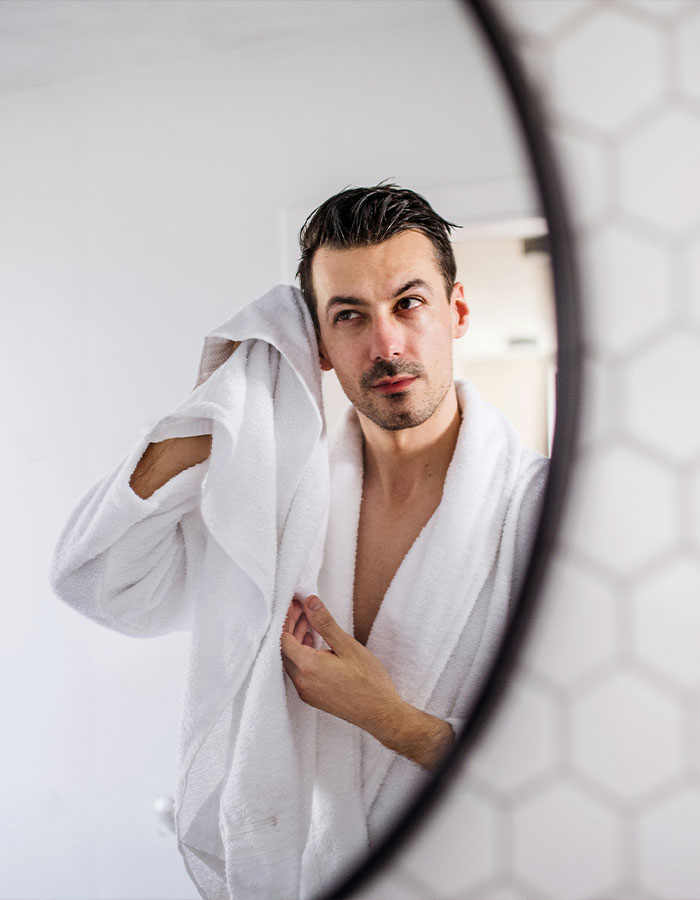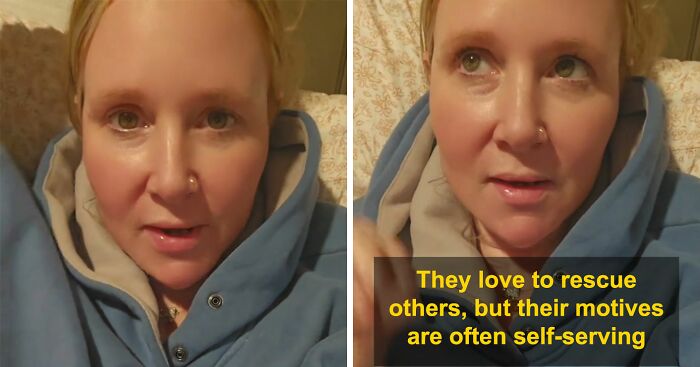Influencer Lisa Fuller has gone viral for sharing ten hobbies she says are commonly observed in narcissists.
Lisa, a self-described narcissistic ab*se survivor and coach, posted an Instagram video outlining “red flags” behaviors people should watch for within their social circles.
“Let’s talk about some of the strangest, crazy, weird hobbies that so many narcissists have,” she began.
“Disclaimer, if you have some of these crazy hobbies, it doesn’t make you a narcissist, but when it’s paired with a bunch of other red flags, definitely something to pay attention to,” she clarified.

Image credits: lisakayefuller
Narcissistic personality disorder is a mental health condition in which people have an unreasonably high sense of self- importance and require constant and excessive admiration, the Mayo Clinic notes.
Individuals with the disorder may lack the ability to understand or care about the feelings of others and can be easily upset by the slightest criticism.

Image credits: Unsplash/Leire Cavia
The first indicator mentioned by Lisa is what she called a “love affair with the bathroom.”
“They will literally hide in there for hours, avoiding you, scrolling, s*xting, watching p*rn, flirting with other people (…) doing all those things they can’t do around you.”
The first one is what she called “a love affair with the bathroom”

Image credits: Unsplash/Getty Images
According to a 2014 study published in the Journal of Sex and Marital Therapy, narcissists tend to be more s*xually driven because they constantly seek self-pleasure.
Similarly, therapist Dr. Thomas Kasper told Psychology Today that narcissists tend to watch adult videos frequently because they prioritize their own pleasure over the objectification of others.
Number two on Lisa’s list is gossiping “like it’s a full time sport.” According to the content creator, narcissists “weaponize gossiping so that every secret becomes currency.”

Image credits: Unsplash/Getty Images
This behavior is typically accompanied by what is known as triangulation, pitting two people against each other behind their backs to appear as a protective figure to both parties.
Julie Hall, author of The Narcissist in your Life, said this behavior is driven by an internalized sense of shame that makes narcissists do everything they can to appear superior.
In line with the second point, Lisa said those with the disorder love watching people struggle.
Narcissists also enjoy hearing other people’s failure stories

Image credits: lisakayefuller
“They love when other people are suffering. They secretly sit back with a bowl of popcorn and watch the show, watching other people in pain,” she explained, adding that other people’s stories of failure makes them feel powerful.
“Someone else succeeding—especially someone close to them—is actually upsetting or even unconsciously painful.”
Narcissists will also “collect admirers” and make them believe they depend on them—that they won’t get anywhere in life without them.
“They’re addicted to attention so they collect anyone that is going to boost their ego,” she said.

Image credits: Unsplash/OurWhisky Foundation
Professor Susan Krauss Whitbourne notes in Why a Narcissist Will Never Back Down that narcissists “show little (if any) empathy” and that they feel “entitled to concessions made by the people around them.”
The fifth “red flag” trait, according to Lisa, is one most people associate with the disorder: an obsession with their image, like Narcissus, the hunter from Greek mythology who lost his life while staring at his own reflection in a pool of water.
A 2016 study cited by Psychology Today found grandiose narcissism to be linked with taking and posting a greater number of selfies—especially ones featuring only the individual.
Narcissists “collect admirers” and make them believe they depend on them

Image credits: Unsplash/David Suarez
In sixth place is creating drama for their own entertainment.
Combining points two and three, Lisa says that narcissists “love chaos. They love causing fights behind the scenes, and then they sit back while the chaos ensues, and they look like the good guy.”
Additionally, the influencer claims that narcissists have “weird fetishes” that are all about making themselves feel more powerful.

Image credits: Unsplash/Nick Fancher
In eighth place, she mentions a dependency on various substances that allow them to “fuel their highs and escape their lows.”
These substances help them avoid the truth that the grandiose façade they present to the world is far from their more vulnerable reality.
In a 2019 article published in Frontiers in Psychiatry, the authors suggest an association between narcissism and substance use, particularly alc*hol. They also note that pathological narcissism was found to be substantially associated with alc*hol and illegal substance use.
Those with the condition “rescue” people and do them favors to appear as their savior

Image credits: lisakayefuller
Lisa then names stalking, whether in person or on social media, as another behavior typically linked to the condition.
“I’ve seen narcissists hire private investigators or follow people, or put tracking devices on people’s cars. They have to know what you’re doing at all times,” she shared.
Dr. Craig Malkin, a Harvard Medical School psychologist, explained that narcissists see their friends or partners as extensions of themselves, as if they belonged to them.
Finally, Lisa said narcissists love to “rescue” people with the intent of being seen as their savior.
“Oh, you’re down and out, here’s some money. Oh, stay on my couch. Oh, you can live with us. Oh, I’ll help you move,’” she exemplified. “They do it so that people owe them later. It’s not out of the goodness of their heart.”
Clinical psychologist Alexander Burgemeester explained that a narcissist will “make the recipient feel dependent on and obligated to the individual,” as per The Daily Mail.
In line with this point, the Mayo Clinic notes that a symptom of narcissism is taking advantage of others to get what they want.
According to the clinic, narcissistic personality disorder affects more males than females and often begins in the teens or early adulthood.
Between 0.5% and 5% of people in the US may have NPD, though experts aren’t sure how common it is because people hide narcissistic beliefs or behaviors, as per the Cleveland Clinic.
“My ex-husband was all of these,” one woman shared in the comments of Lisa’s post























